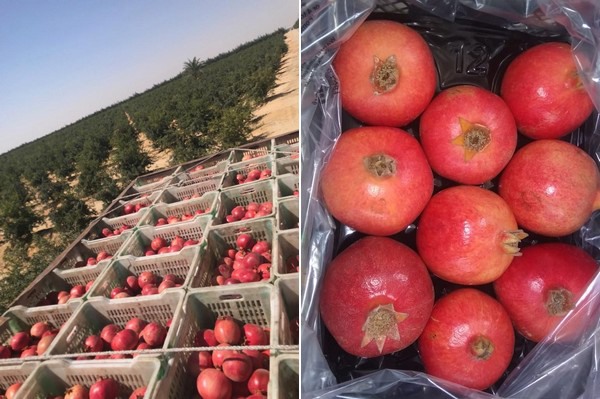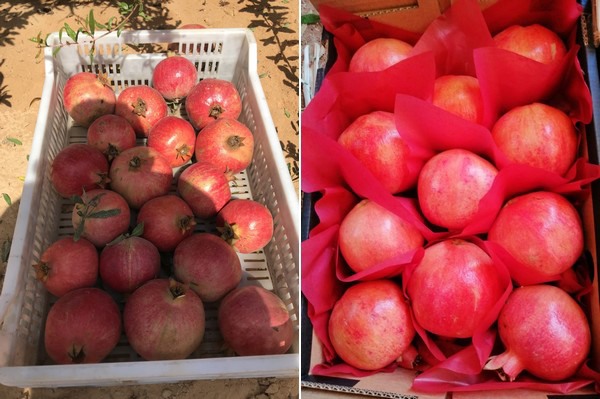The pomegranate season in Egypt is expected to start at the end of July, with the Early 116 variety. Demand is expected to be high, as the availability of exportable pomegranates might be lower than usual. Getting the quality right is one of the hardest challenges the farmers have to go through, as the government is very strict on the requirements.
Although still a few weeks away, Pyramids business development manager Abdullah Tharwat is excited about the upcoming pomegranate season in Egypt: “We have a description for the pomegranates here in Egypt. It’s called the ‘fruit from heaven’, which I think is beautiful. In Egypt, we cultivate different varieties, mainly Wonderful, Manfaluti, Baladi and Early 116. The season starts with early 116 and is expected to kick off at the end of July. Prices are looking to be 0.38$ per kg at the farms.”

The government has strict requirements for the fruits to be allowed for export. Getting the quality right is one of the most important and challenging tasks for the farmers, Tharwat explains. “The pomegranate requires special treatment. And so many farms here in Egypt are maintaining the best practice, to be able to get the good quality. With the right quality, they can be enrolled in the coding system, so their fruits are allowed to be exported globally. Many farms use papers to cover the pomegranates to avoid them getting burned from the sun. It’s expected that demand will be quite high this season, as not all farms have the good quality required.”

“Getting the quality right is one of the major challenges farms have to deal with. Second would be the postharvest treatment. You need to have professional workers to get the work done well, because they collect the fruit from the tree three times in a season. First the large sizes are collected, because these sizes are preferred in Asian and European markets. After that, the small sizes are collected, for Iraq and the Gulf markets. Finally, the fruits that are destined for the local markets are picked. All this time, workers have to focus in cutting it from the tree with its entire crown,” Tharwat said.

It’s convenient that different markets prefer different varieties and sizes. “European countries prefer the Wonderful variety more than they do Early 116, so demand will be less in the early days of the season. Asian countries and GCC markets deal with large volumes. Luckily for us, the effects of coronavirus are mostly felt in the vegetable sector, whereas demand for fruits is still good. We expected to deal with 2500 tons of pomegranates for this season, and can’t wait to get started!” Tharwat concludes.
For more information:
Abdullah Tharwat
Pyramids Agricultural Investment Co
Tel: +201005027256
Email: Abdallah@pyramids-agriculture.com
www.pyramids-agriculture.com
